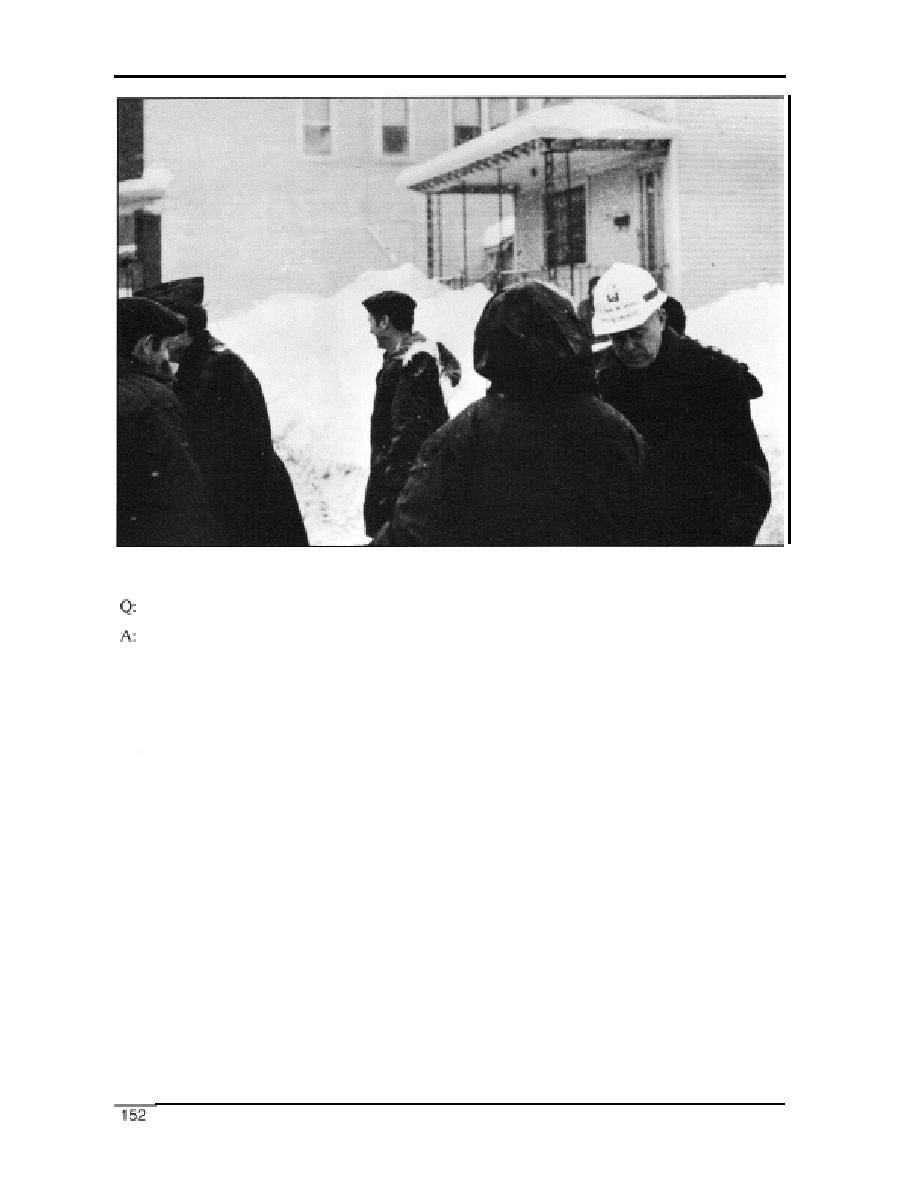
Engineer Memoirs
General Morris toured Corps of Engineers emergency operations in Buffalo, New York, after a
severe snowstorm in February 1977.
What about the Chief of Engineers' relationship with Congress?
Congress. The Chief of Engineers has a lot of business with governors too, incidentally,
because of the permits. Congress looks on the Chief of Engineers as an individual with whom
they have a right to communicate. They do. The Chief of Engineers, to be effective, needs
to be able to deal with the Congress smoothly, within the limits of his authority and what he
can do, but also, he has to know the players over there and be able to talk to them.
I had much background in dealing with Congress, including 11 years testifying before four
committees. I had no problem with the system. I don't mean I didn't have problems with
individual congressmen. So far as knowing the players, who to deal with and how to
approach them, respond, et cetera, we worked that out pretty well, I think.
As always, we had good people in Civil Works. The directors of Civil Works in my time
were McGinnis and Graves, and they were both very good in dealing with outside elements.
The staff in Civil Works, Tofani, Gene Lawhun and Schwaiko and Irv Reisler, all those Civil
Works staffers who had been in the congressional liaison field since-were just excellent.
They were probably the best team in Washington for doing its business with the Congress.
The trick wasn't doing business with them. The trick was doing business with them and
staying within the bounds of propriety. We were always accused of stepping over the line,
but in fact, I know of no instances where the Corps used its access to the Congress
improperly. Of course, you know, everybody says we did. Those are the people and agencies
in our government with whom the Chief of Engineers dealt.



 Previous Page
Previous Page
